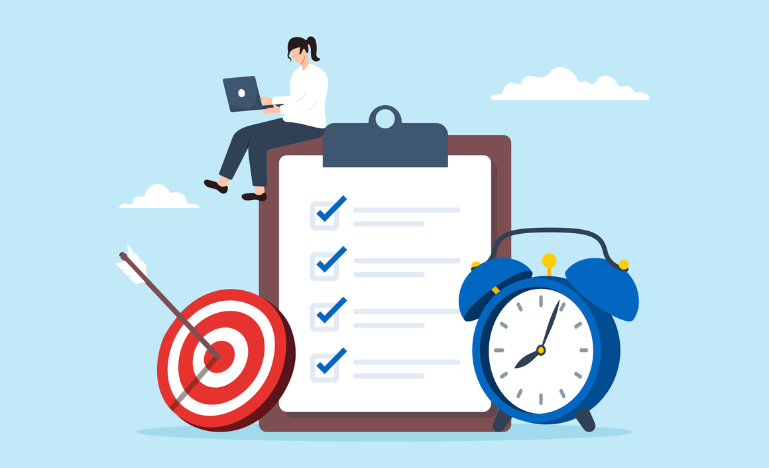Comment l’IA a accru ma productivité
De la recherche accélérée à des ébauches plus percutantes : voici comment l’IA transforme la pratique de la rédaction juridique

Depuis quelques mois, les spéculations qu’on se retrouve en proie à une « bulle de l’IA » se multiplient. La flambée des marchés repose en grande partie sur les entreprises d’intelligence artificielle, dont les valorisations sont liées aux attentes de gains massifs de productivité.
Pourtant, les résultats observés jusqu’à présent invitent à la prudence. Selon The Atlantic, même les entreprises qui investissent massivement dans l’IA ne constatent « pratiquement aucun impact sur leurs résultats financiers ». Une étude va même jusqu’à suggérer que certains programmeurs seraient 20 % plus lents avec l’IA que sans elle.
Mon expérience personnelle me conduit toutefois à une autre conclusion. En tant que professeur de droit et juriste, j’ai franchi récemment un cap dans mon utilisation de l’IA, qui se traduit par un véritable bond en productivité.
Après avoir expérimenté de façon sporadique avec ces outils depuis 2022, j’ai commencé au cours des deux derniers mois à les utiliser quotidiennement. Perplexity, Claude et ChatGPT sont désormais des compagnons constants : assistants de recherche, interlocuteurs critiques et réviseurs, que je consulte à chaque étape de mon travail de rédaction.
L’effet est transformateur. Ce n’est pas simplement l’adoption d’une nouvelle application, mais plutôt le passage de la machine à écrire au traitement de texte, ou encore du papier à Internet pour la recherche documentaire.
Pour moi, les gains les plus marquants se manifestent dans trois domaines essentiels au travail juridique et académique : mener mes recherches plus efficacement, rédiger avec moins d’obstacles et réviser mes textes de manière plus rigoureuse. Ces changements de méthode, difficiles à mesurer en chiffres absolus, sont néanmoins indéniables.
La recherche transformée
Avant que les robots conversationnels n’intègrent des capacités de recherche sur le Web, analyser une question juridique signifiait consulter Google, CanLII ou SSRN pour y trouver des jugements, des dossiers judiciaires, ou des articles spécialisés.
C’était un processus fastidieux, nécessitant de multiples requêtes, une filtration plusieurs liens, et beaucoup de temps perdu sur des documents peu pertinents, avant d’obtenir progressivement une vue d’ensemble de l’enjeu.
Or, avec l’amélioration constante de Perplexity et d’autres modèles dans la collecte et le résumé de renseignements, j’ai constaté une transformation radicale de ma recherche préliminaire.
Bien que les résultats varient encore, ces outils offrent maintenant régulièrement des synthèses suffisamment fiables pour me permettre de démarrer rapidement, souvent accompagnées de références pertinentes.
Souvent, un seul document repéré par GPT ou Perplexity ouvre un réseau de notes de bas de page et de sources qui mène directement au cœur de la matière.
Au lieu de naviguer sans fin sur SSRN, Springer ou Google, je peux aujourd’hui compter sur un résumé généré par l’IA et ses hyperliens pour obtenir en quelques minutes une vue d’ensemble fiable.
Je peux ainsi déterminer très tôt si une piste mérite d’être approfondie ou abandonnée. Ce gain est si important qu’il est désormais impensable pour moi de revenir en arrière.
Rédiger avec un nouveau rythme
Dès l’apparition de ChatGPT, une remarque m’avait marqué : l’IA ne remplacera pas les bons rédacteurs, mais elle permettra à ceux qui éprouvent des difficultés d’écrire convenablement.
Jusqu’à récemment, je considérais ne pas avoir besoin d’IA pour rédiger, puisque je me débrouillais suffisamment bien. Je me contentais parfois de soumettre une phrase ou un paragraphe pour voir quelques reformulations, que j’acceptais rarement.
Aujourd’hui, j’intègre l’IA beaucoup plus spontanément dans ma démarche. Je l’utilise pour de courts extraits, en aller-retour fluide, chaque fois que je sens un blocage.
Sa valeur ne réside pas seulement dans l’amélioration du style, mais dans le changement de perspective. Un nouvel angle de vue suffit souvent à me débloquer et à poursuivre ma réflexion.
L’IA met également en lumière certaines faiblesses dans mes textes. Par exemple, elle signale l’absence d’une accroche dans un paragraphe d’introduction ou suggère une structure plus efficace.
L’IA comme réviseur
Habituellement, la révision d’un texte me prend plusieurs jours, parfois des semaines. Je retravaille phrase par phrase, traquant les lourdeurs et peaufinant le rythme.
Ce processus est désormais bouleversé. Je soumets à l’IA des versions entières, que l’outil révise pour corriger les coquilles, resserrer le style, lisser la fluidité et mettre en évidence les changements proposés.
Ces ajustements, souvent subtils, sont ceux que je mettais auparavant beaucoup de temps à déceler. Je constate que j’accepte désormais la majorité de ses suggestions, et que mes textes atteignent une qualité supérieure en un temps réduit.
L’IA s’avère également précieuse pour la gestion des références. Je conserve un fil de travail où je conserve mes liens et titres, et l’outil les reformate instantanément en citations conformes au style McGill, sans autre intervention.
Mesurer l’impact
Il reste difficile de quantifier précisément l’effet de l’IA sur mon travail.
C’est dans la recherche que l’impact est le plus manifeste. En effet, je peux ainsi obtenir plus rapidement des sources, ce qui me permet d’entreprendre davantage de projets et de les conclure plus vite.
Pour la révision, l’IA n’augmente pas nécessairement la productivité brute, mais elle améliore la qualité des textes d’une façon qui aurait été impensable autrement.
Si certains constats laissent croire que l’IA peut ralentir le travail de programmation, je crois qu’en matière de lecture et de rédaction, son apport — en matière de qualité et de rendement — est indéniable.


